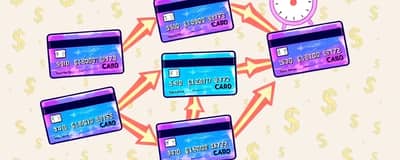Secured Credit Cards: Rebuilding Your Credit Safely

Rebuilding a damaged credit profile can feel overwhelming, but secured credit cards offer a clear path forward. By backing your card with a cash deposit, you can establish or repair credit in a controlled environment.
In this article, we explore how secured credit cards work, their advantages and disadvantages, and practical strategies to help you regain financial stability with confidence.
Understanding Secured Credit Cards
A secured credit card is a powerful tool for anyone starting with little or no credit, or recovering from past financial setbacks. Unlike traditional unsecured cards, a secured card requires a refundable security deposit that typically becomes your credit limit.
With a secured card, you make purchases, receive monthly statements, and pay interest on any outstanding balances—just like a regular credit card. The key difference is the deposit serving as collateral and the emphasis on responsible repayment.
Why a Secured Card Can Be Your Best Ally
Secured cards are designed to be accessible. Individuals with low credit scores or no credit history often find easier approval when applying. By making on-time payments and maintaining low balances, you build a positive track record.
Most issuers report your activity to major bureaus. Over time, this can help you establish a positive credit history and demonstrate financial responsibility to future lenders.
- Easy approval for poor or thin credit files
- Acceptable wherever Visa, MasterCard, or Discover are accepted
- Potential rewards or cash back on purchases
- Refundable deposit once account is in good standing
Potential Drawbacks to Be Aware Of
While secured cards open doors, there are trade-offs. The initial deposit—often starting around $200—can be a hurdle. Fees may include application charges, annual fees, or monthly processing costs.
Interest rates on secured cards tend to be higher than those on unsecured products. Carrying a balance can quickly lead to expensive finance charges and damage your progress.
- Upfront deposit requirement ties up cash
- Possible annual or monthly fees
- Higher APR, sometimes above 20%
- Low credit limits affect utilization ratios
Strategies for Responsible Use
Success with a secured credit card hinges on disciplined habits. Keeping balances low and paying on time lay the groundwork for credit rehabilitation.
- Make at least the minimum payment by the due date every month
- Pay statements in full to avoid high interest rate traps
- Keep your balance below 30% of your limit—under 10% if possible
- Monitor your credit report to track progress and catch errors
Comparing Your Options: Secured vs Unsecured vs Prepaid
Understanding the distinctions among credit and payment cards helps you choose the right product for your goals.
Making the Transition to Unsecured Credit
Most issuers allow a seamless upgrade once you demonstrate consistent, responsible use and on-time payments. After six to twelve months, you may qualify for an unsecured card, recovering your deposit in the process.
Upgrading improves your credit mix and often raises your available limit, both of which can further boost your scores.
Who Can Benefit Most and Practical Tips
Secured credit cards are ideal for:
- Young adults establishing financial foundations
- Recent immigrants building domestic credit histories
- Individuals recovering from bankruptcy or setbacks
- Anyone seeking control over spending while rebuilding
When shopping for a secured card, compare:
Annual fees, interest rates, and reporting policies—these factors determine how quickly and cost-effectively your credit profile grows.
Conclusion
Secured credit cards offer a pragmatic and structured approach to credit restoration. By setting aside a deposit and adopting disciplined financial habits, you unlock the potential to monitor your credit report regularly and steadily improve your score.
Embrace this tool with purpose—use it wisely, pay on time, and watch as opportunities for unsecured credit and financial freedom unfold before you.
References
- https://www.equifax.com/personal/education/credit-cards/articles/-/learn/what-is-a-secured-credit-card-do-they-build-credit/
- https://www.mtb.com/library/article/5-benefits-of-a-secured-credit-card
- https://www.investopedia.com/terms/s/securedcard.asp
- https://bettermoneyhabits.bankofamerica.com/en/credit/build-credit-with-a-secured-credit-card
- https://www.debt.org/credit/cards/secured/
- https://www.lexingtonlaw.com/blog/credit-cards/pros-and-cons-of-secured-cards.html
- https://www.nerdwallet.com/article/credit-cards/secured-credit-cards-vs-unsecured-difference
- https://www.afbank.com/article/pros-and-cons-of-secured-credit-cards-explained






